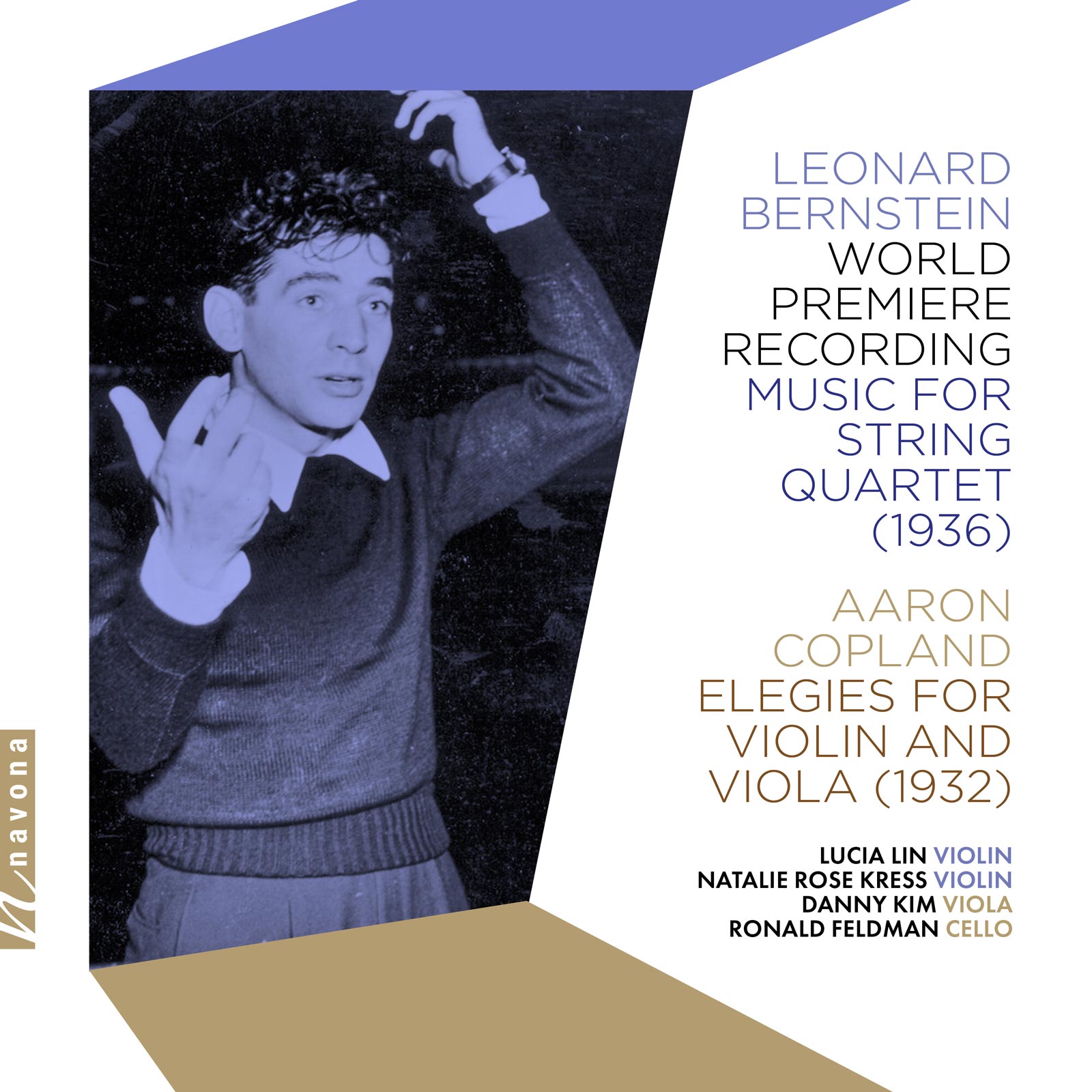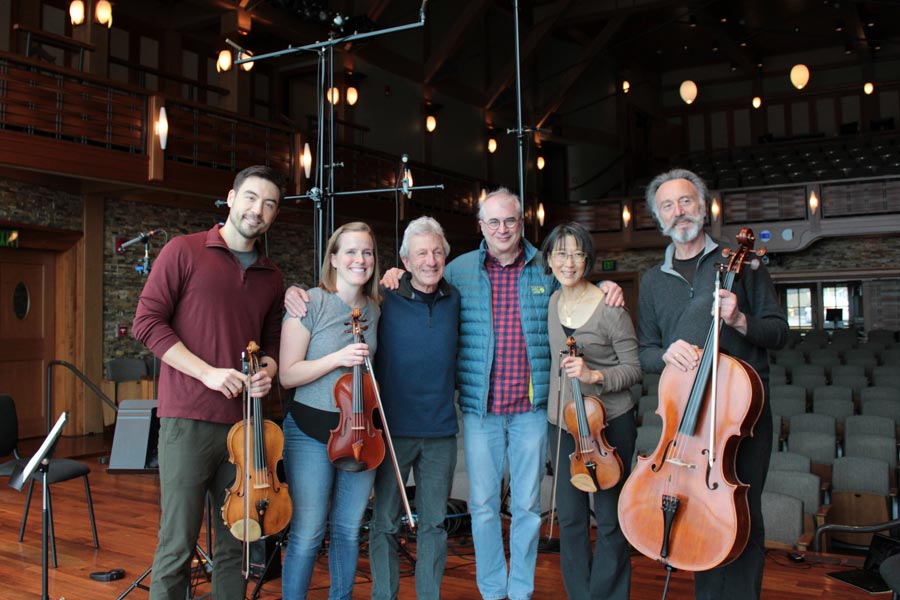Bernstein: Music for String Quartet (1936)
Leonard Bernstein composer
Aaron Copland composer
Lucia Lin violin
Natalie Rose Kress violin
Danny Kim viola
Ronald Feldman cello
Navona Records is proud to present MUSIC FOR STRING QUARTET, the world premiere recording of renowned composer Leonard Bernstein’s long-lost work. Composed by an 18-year-old Bernstein during his studies at Harvard, the piece has been steadfastly shepherded from its re-discovery to this historic release by former Boston Symphony Orchestra Librarian John Perkel, and is performed here by Lucia Lin, Natalie Rose Kress, Danny Kim, and Ronald Feldman. “Movement I” and the newly-discovered “Movement II,” which was found within the U.S Library of Congress, are accompanied here by the seldom-recorded duo piece Elegies for Violin and Viola by composer Aaron Copland, a musical mentor, collaborator, and dear friend of Bernstein’s.
Listen
Stream/Buy
Choose your platform

Experience in Immersive Audio
This album is available in spatial audio on compatible devices.
Coming soon to Apple Music, Tidal, and Amazon Music.
"...this release is a remarkable act of scholarship that resurrects a seminal moment in the history of American classical music, thoughtfully curated and meticulously executed."
Track Listing & Credits
| # | Title | Composer | Performer | |
|---|---|---|---|---|
| 01 | Music for String Quartet (1936): I. Allegro Vivace | Leonard Bernstein | Lucia Lin, violin; Natalie Rose Kress, violin; Danny Kim, viola; Ronald Feldman, cello | 7:32 |
| 02 | Music for String Quartet (1936): II. Andante (Tempo di Sarabande) | Leonard Bernstein | Lucia Lin, violin; Natalie Rose Kress, violin; Danny Kim, viola; Ronald Feldman, cello | 3:25 |
| 03 | Elegies for Violin and Viola (1932) | Aaron Copland | Natalie Rose Kress, violin; Danny Kim, viola | 6:29 |
Cover photograph from the Leonard Bernstein Collection, Library of Congress, photographer unknown.
Music for String Quartet by Leonard Bernstein © Amberson Holdings, LL. Special thanks to the Leonard Bernstein Office.
Elegies by Aaron Copland is an unpublished work recorded by special permission of the Aaron Copland Fund for Music, copyright owner and successor to Aaron Copland.
Recorded February 6, 2023 at the Shalin Liu Performance Center in Rockport MA
Session Producer, Engineer, Editing, Mixing & Mastering Brad Michel
Assistant Engineer Lucas Paquette
Executive Producer Bob Lord
A&R Director Brandon MacNeil
VP of Production Jan Košulič
Audio Director Lucas Paquette
Production Manager Martina Watzková
VP, Design & Marketing Brett Picknell
Art Director Ryan Harrison
Design Edward A. Fleming
Publicity Aidan Curran
Artist Information
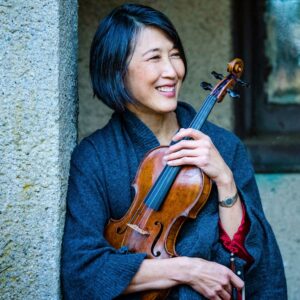
Lucia Lin
Lucia Lin currently enjoys a multi-faceted career of solo engagements, chamber music performances, orchestral concerts with the BSO, and teaching at Boston University’s College of Fine Arts. Lin made her debut at age 11, performing the Mendelssohn Violin Concerto with the Chicago Symphony, then went on to be a prizewinner of numerous competitions, including the prestigious International Tchaikovsky Competition in Moscow. She joined the BSO at the age of 22, and has also held positions as acting concertmaster with the Milwaukee Symphony and for two years, concertmaster with the London Symphony Orchestra.
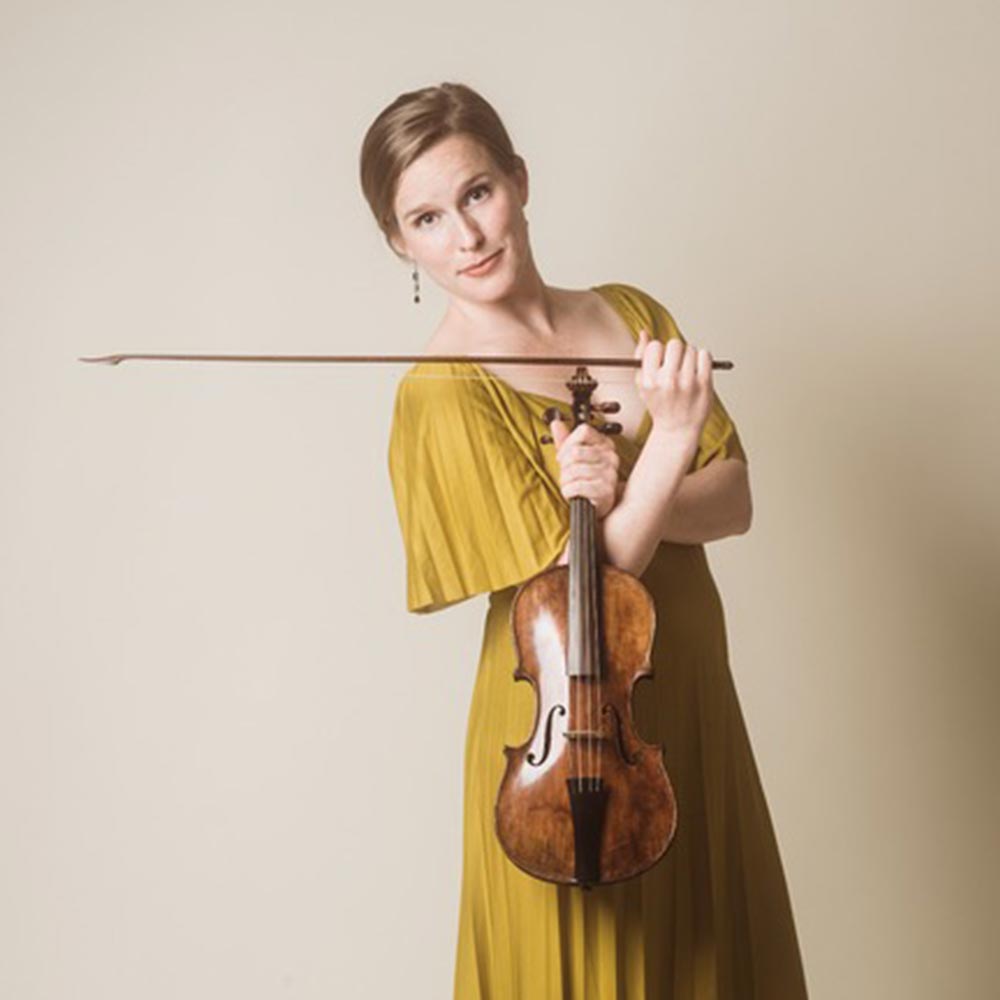
Natalie Rose Kress
Praised by the New York Times for her “splendid playing,” Natalie Rose Kress is a modern and period violinist based in Washington DC. Following three summers as a Tanglewood Fellow, she was awarded the Jules C. Reiner Violin Prize from the Tanglewood Music Center and performed with Yo-Yo Ma at the 2015 Kennedy Center Honors, honoring Seiji Ozawa. Learn more: belvedereseries.org

Danny Kim
A native of St Paul MN, violist Danny Kim joined the Boston Symphony Orchestra at the start of the 2016-2017 season and was appointed 3rd chair of the viola section during the 2017-18 season. An avid chamber musician, Kim has performed with a number of different ensembles, and has even appeared on Sesame Street with conductor Alan Gilbert. Learn more: bso.org

Ronald Feldman
Twice winner of the American Symphony League’s ASCAP Award for Adventuresome Programming of Contemporary Music and member of the Boston Symphony Orchestra for 34 years, Ronald Feldman has achieved critical acclaim for his work as conductor and cellist. John Williams, composer & Conductor Laureate of the Boston Pops Orchestra has called Feldman, “a brilliant conductor, who displays the best leadership qualities… an outstandingly high level of musicianship that imbues his conducting style with strength, taste, and imagination.” Learn more: music.williams.edu
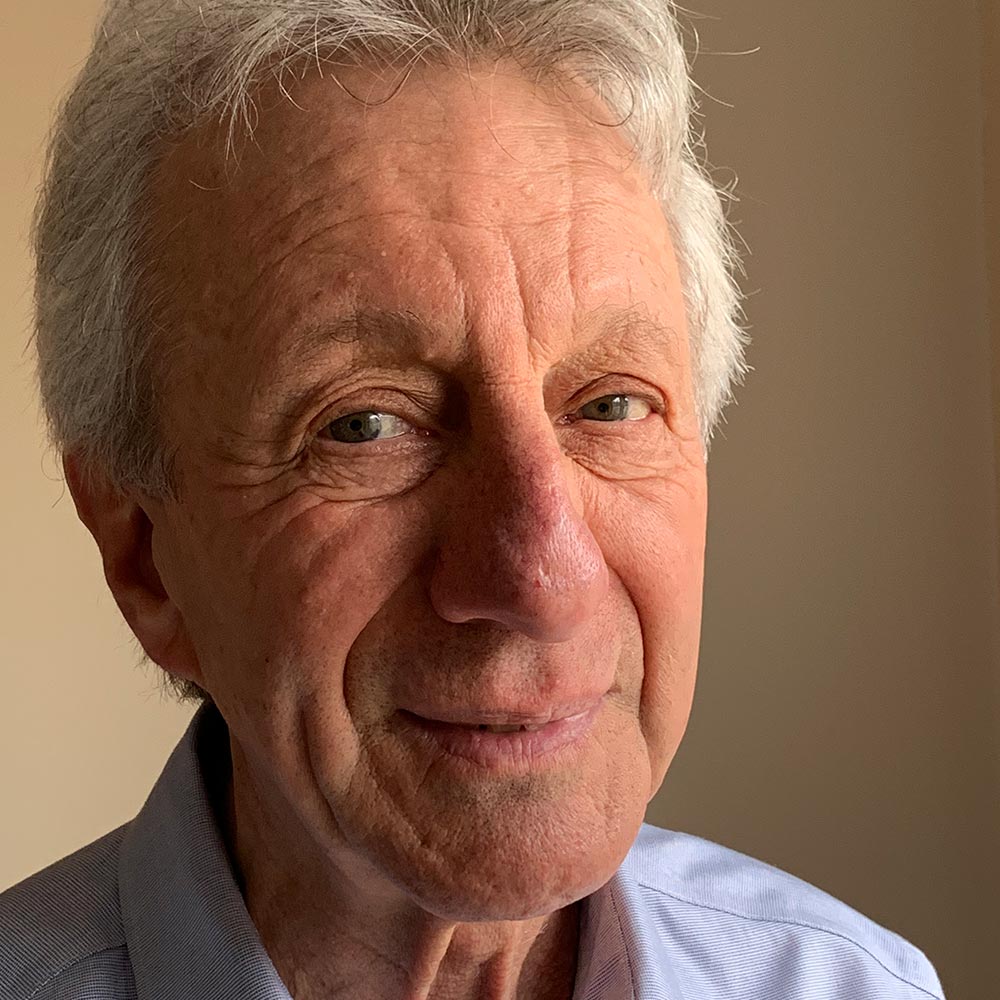
John Perkel
As an orchestral librarian, John Perkel’s career spanned 35 years with the Buffalo Philharmonic Orchestra, Rochester Philharmonic Orchestra, New York Philharmonic, and the Boston Symphony Orchestra. In addition to his role with the BSO, he served as the orchestra librarian for the Tanglewood Music Center Orchestra for many summers. Following Perkel’s retirement in 2016, he initiated and has maintained a chamber music series at the Stockbridge MA Library.
Notes
Leonard Bernstein composed his Music for String Quartet in 1936 while he was a student at Harvard University. His impetus to compose the piece is unknown; perhaps it was a school assignment, or something he composed on impulse. It is one of several juvenilia works of Bernstein’s; others include his Piano Trio (1937) and Piano Sonata (1938).
The piece was first performed publicly at Tanglewood’s Linde Center for Music and Learning on November 6, 2021 by violinists Lucia Lin and Natalie Rose Kress, violist Danny Kim, and cellist Ronald Feldman. These same musicians came together again to make this first commercial recording with PARMA Recordings.
I first heard about the piece from my friend Lisa Benson Pickett, daughter of former Boston Symphony Orchestra violinist Stanley Benson, who told me about its fascinating backstory. According to Lisa and her brother, Peter W. Benson:
Our father, Stanley Benson, was a member of the New England String Quartet in the 1930s. The group was looking for a pianist to join their group to play quintets, and invited a young Leonard Bernstein to play with them for a series of concerts. During a rehearsal, Bernstein asked the group to play through his new string quartet. He eventually gifted the original handwritten manuscript to our father, and it remained in our family for decades. Our mother, Clara Stagliano Benson, was also a violinist and occasionally played it at home with her quartet. Our parents and Bernstein remained friends throughout their lives and would see each other in Boston, New York, and at Tanglewood.
Our mother kept the manuscript in the family music cabinet for decades, and after she told us about its existence we wanted the world to know about it as well. With the help of John Perkel, the Bernstein family, and The Leonard Bernstein Office, we are so pleased Music for String Quartet is having its moment to shine.
Several months before this recording, Garth Edwin Sunderland, Vice President for Creative Projects at The Leonard Bernstein Office, who edited the edition of the work used for this recording, identified a second movement of the quartet at the Library of Congress. This was a great discovery, though somewhat anticipated: Bernstein had inserted a roman numeral one on the first page of all four parts. That led me to wonder if there might be additional movements. Until the discovery of the second movement, I pondered if Bernstein did not finish the quartet, or were there any subsequent movements lost.
The first movement opens with a driving rhythmic force from all four musicians. The mood then changes into a jazzy motif and, at times, becomes rather mysterious before returning to a repeated section reminiscent of the beginning. The music captures styles of other composers, yet foreshadows what Bernstein would compose years later. The second movement, though darker, introspective, and more serious, nevertheless incorporates thematic material from the first.
Music for String Quartet may soon be available for purchase as a printed publication. As one of Leonard Bernstein’s earliest musical compositions, I am delighted to have worked with the Bensons, the quartet, the Bernstein family, the Leonard Bernstein Office, and PARMA Recordings to present this first commercial recording.
— John Perkel, former Boston Symphony Orchestra Librarian
